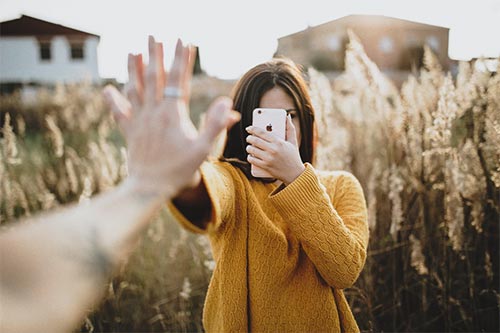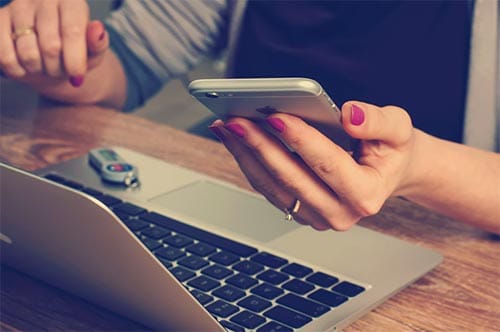
The Internet can be strange, complicated, confusing place to navigate. While on the one hand it opens up unimagined doorways to information, with the ability to connect with people in literally every corner of the world, it can also be a cruel, scary place in the extreme. Women are particularly vulnerable in the online world, with angry exes and offended strangers often just a few determined and malicious strokes on the keyboard away from disrupting your online existence for years to come, if not forever. Considering that it is a rapidly growing technology, even as it is relatively new, unfortunately, the race between keeping yourself safe from predators and the new tools at their disposal to stalk, harass and harm you is often neck and neck. In such an environment, our only recourse is vigilance and take the help of every safety measure available to us. Here's a seven-step online safety checklist that can definitely beef up your security on the Internet.
Use two-step verification
It is time-consuming, but one of the most effective ways of keeping yourself safe on the Internet. A two-step verification means you will need to put in a code sent to you by Facebook, Google, Twitter, Dropbox (pretty much every account offers this provision). Some will ask you to put in the code every time you log in, others will ask you for it every time a new device is used to log in. Either way, it is a very good idea to sign up for this. You will know instantly if a hacker/ stalker is trying to access your accounts.
Use incorrect answers
Almost all accounts require you to use security questions to retrieve the account in case you forget the password. While most of us change the password after acrimonious breakups or when exes start acting obsessive, we often forget to secure our security questions. If the person trying to hack your account knows you intimately, it is very possible that they might be able to guess the answers to your security questions. So don't answer questions like 'your first pet's name', 'your mother's maiden name', 'your alma mater's name' correctly. Pick a random answer no one might think of. If you're worried you'll forget random answers, use a password manager app to keep a secure record of them.

Don't auto-backup your photo/ video library to the cloud
Relationships today mean lots of selfies being exchanged. And often, these selfies can be explicit and sexual in nature. While the most foolproof way to protect yourself from this threat is to not take and send selfies that can be identified as yours (if you're sending a cleavage picture, cut out the face, and never let markers like tattoos be seen in the photo), in the real world, this is often an impossible ask. So do the next best thing - disable the feature that allows the media on your phone to auto-sync on the cloud. While there might not be much you can do about vengeful people with images stored on their phones and clouds, at least you can protect your privacy from those who might try to hack into your cloud in search of photos/ videos to blackmail you with.
Set up a Google alert for your name
If you're worried about what a resentful ex might do with the photographs, videos or other sensitive data you've sent to them, set up a Google alert for your name. You can specify what kind of sites you want Google to search your name on, how often to carry out the search and the email address that notifications need to be sent on. If this sounds like something you need to do, you can set up an alert here. While you will have to contact individual sites and their owners to delete your photos or other information posted on it with the intention to compromise your security, while you work on that, you can ask Google to remove the information from its search so that it doesn't show up when someone googles you. Here are Google's policies for removing non-consensual, personal photos from its archives.
Don't add unnecessary information to your social media accounts
Adding your birthday, place of work, city/ area of residence on social media might seem innocuous enough, but take a moment to think about why you need to make that information public at all. If anyone wished to hack or stalk you, you've already provided them with a wonderful head start, while you are completely unaware. Now add to this 'basic' information, all the information you've provided by checking in at the places you frequent, the people you post photos with, the time and geo stamps on those photos and you've made not just yourself, but the people around you vulnerable too. A diligent stalker or hacker who is specifically targeting you can easily, and with a fair amount of precision, can map your day and movements simply with what you've handed to him on social media alone. Even if you do use social media to share photos - as so many of us do - make sure you scrub it of metadata and never post them in real time. Here's an excellent guide on why scrubbing photos of metadata is important and how you can do it.

Keep checking the privacy settings of your social media networks
Social networks keep changing their privacy policies, which may affect the settings you've enabled or disabled to keep your information secure. While we would recommend that you always read updated privacy policies when your network sends you a notification, realistically, we all know that it's highly improbable that you will do it. A reasonable compromise is check your security settings every three or four months. Maybe your network has added security features, or its changed policy means some have been disabled. Either way, you need to know.
Be aware of who can see your information
Most of us tend to allow friends of friends to view the things we share on Facebook. While that might seem like a reasonably safe filter, bear in mind that some of your friends might not be particularly choosy or careful when it comes to accepting friend requests. You might have accepted friend requests from professional contacts as well, while knowing little about who they are outside of the work context. It's always good to create lists for people, allowing only limited access to your posts. While you might be okay with everyone reading your thoughts of things, perhaps there is merit in showing a little more discretion when it comes to who can view the photographs you put up.
Track Latest News Live on NDTV.com and get news updates from India and around the world
